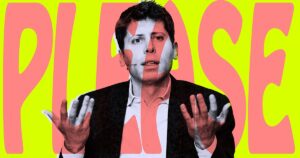OpenAI States AI Competition Will Conclude if Copyrighted Material Training Isn’t Considered Fair Use

The Ongoing Debate Over AI and Copyright
Introduction to the AI Copyright Debate
OpenAI is advocating for a significant change in copyright law through the upcoming AI Action Plan, anticipated to be released in July. This plan seeks to declare that AI training falls under "fair use," which could allow AI companies unrestricted access to training data. OpenAI believes this access is essential in the competitive landscape of artificial intelligence, especially concerning the race against China.
The Current Legal Landscape
As it stands, courts are examining whether the training of AI on copyrighted material constitutes fair use. Rights holders, including artists and creators, argue that AI systems trained on their work can potentially compete with them in various markets. This situation raises concerns that AI might dilute human creativity and replace traditional creators.
Key Points in the Legal Battle
Fair Use Controversy: The crux of the issue lies in whether using copyrighted material for AI training meets fair use criteria.
Lawsuits Against AI Companies: OpenAI is not alone in this battle; many AI companies face lawsuits from rights holders who are concerned about the impact of AI on creative industries.
- Prominent Rulings: A notable court ruling favored rights holders, concluding that AI training is not fair use and stating that AI functionalities could overshadow existing legal research platforms like Thomson-Reuters’ Westlaw.
OpenAI’s Position on AI Training
OpenAI presents a different perspective. The organization argues that its AI models do not replicate original works for public consumption. Instead, they claim the models learn from various texts to extract essential patterns and linguistic structures. According to OpenAI, this process aligns with copyright objectives and the fair use doctrine, as it generates new content without diminishing the original works’ market value.
OpenAI’s Perspective Explained
Learning vs. Replicating: OpenAI stresses that AI’s training process is about learning from existing works rather than directly reproducing them. This fundamental distinction is central to their argument for fair use.
- Creating New Works: Assertions have been made that AI creates original outputs that do not substitute the original copyrighted works, suggesting a transformative use.
Proposals for a New Copyright Strategy
In response to the ongoing legal scuffles, OpenAI has made recommendations during a public comment period on Trump’s AI Action Plan. These recommendations aim to shift the U.S. copyright strategy to better support the growth of the AI industry.
Key Recommendations Include:
Ending Legal Disputes: OpenAI suggests the need to resolve existing court battles to foster a more supportive environment for AI innovation.
Promoting AI Freedom: The organization emphasizes the importance of granting AI companies the freedom to learn from existing works to stay competitive.
- Concerns Over Competitors: OpenAI warns that if U.S. copyright laws remain restrictive, other countries, particularly China, would continue to exploit data that American companies cannot access. This could potentially give China a competitive advantage while providing inadequate protections for original intellectual property creators.
The Broader Implications
The outcome of these discussions and legal decisions will have far-reaching effects on the future of AI development and the creative industries. As the debate continues, it raises important questions about the balance between fostering innovation in artificial intelligence and protecting the rights of original creators.
This conversation is not only vital for the stake of businesses and creators involved but will also shape the landscape of cultural and technological progress in the coming years.






